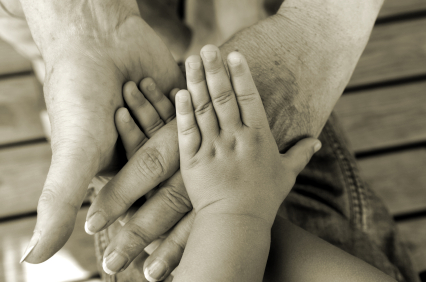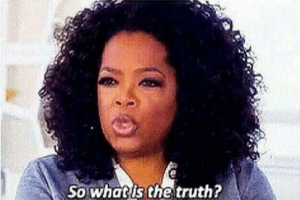
Cheyenne Dorsagno, Editor-in-Chief |
Everyone’s aware of the current intergenerational tension, primarily framed as Baby Boomers versus Millennials.
Members of both groups argue back and forth, complaining about who’s been dealt the worse hand and accusing the opposition of having made the world a worse place. The former generation has toughed it out in a society without creature comforts and safe spaces; the latter generation has been earning an unlivable wage that cannot measure up to the unaffordable housing market and their indulgent diet of avocado toast. This one set up the climate change crisis; that one’s setting up more “entitlement” programs than ever before. We’ve got the bigots and the snowflakes going head to head, and the Gen Xers are like the forgotten middle child caught in the throes of a Facebook thread, stuck between pointedly capitalized comments and passive aggressive ellipses.
However, something about this dialogue doesn’t quite add up. How could these sensitive snowflakes also be the violent “social justice warriors” they’re claimed to be? How could Millennials have inherited the fight against systemic oppression without giving some of the credit for its progression to the only people that were alive during some of its major turning points?
If Millennials hadn’t given us meme culture, and if Baby Boomers hadn’t given us Oprah Winfrey, then how else would we have the perfect reaction to this conundrum: Oprah gazing with therapeutic earnest under the white, bold-faced text “So what is the truth?”

To puzzle this out, let’s first look at a sample of anti-Millennial criticism from Nebraskan Senator Ben Sasse, as excerpted from his book, “The Vanishing American Adult”: “[Millennials are] often over-medicated, hooked on screens, failing to venture out into the world, losing touch with religious faith, and increasingly intellectually fragile … [To prepare for the world, they] need to understand mortality, mix with older generations, develop strong reading habits, put production before consumption, nurture a strong work ethic, and travel beyond their comfort zones.”
Millennials are often branded as selfish, stupid, lethargic, irresponsible, apathetic consumerists, but studies show quite the contrary. The New York Times reported that Millennial anxiety is on the rise, so they care all too much about a multitude of things. Millennials aren’t just wallowing in their pain either. They are proactive about their troubles, such as by pinching pennies to combat their financial woes and to save up for what really matters.
Millennials compare prices in stores and online, and they are much less loyal to brands than previous generations. They would much rather have the off-brand product in favor of a better bargain, as shown by a Born This Way survey. Millennials are prioritizing their spending, but they are willing to spend a little extra on their health and on “experiences” over commodities, according to a Goldman Sachs Global Investment Research. Maybe kids aren’t going out in the snow banks like they used to, but they are saving up to buy a nice pair of athletic shoes to backpack through Europe. America may have an obesity epidemic, but according to Aetna’s What’s Your Healthy Survey, young Americans are growing up with a better understanding of health. Millennials are realizing that health is a daily commitment to diet and exercise, as opposed to the previously held belief of health as simply avoiding illnesses.
Another part of the criticism against Millennials is that they are less likely to give to charity, less likely to go to church, and less likely to show up at the voting booths. Even still, they have just as much of an interest in God, politics, and others’ well-being as people did forty years ago, according to a Gallup Poll and New Values Survey. Millennials are just turned off from monoliths and “faceless entities” that come across as cold, impersonal, or even greedy. Two-thirds of young people suspect that politicians enter public service for selfish reasons, and 36 percent of those who don’t attend church are weary of “organized religion,” according to Harvard University and Gallup research, respectively.
Instead, Millennials want to have a direct hand in it all; they want a personal connection. Many Millennials are exploring their faith at home, more likely identifying as “spiritual” than “religious.” They would rather call up their representatives, protest for a cause themselves, and physically volunteer in their community. Millennials are the driving force of crowdfunding campaigns, because they are drawn in by an individual’s unique story, and they like to see the immediate impact of their help. According to BussinessWire, Millennials mostly contribute to international, environmental, and humans’ rights causes.
Millennials don’t just want to do good either; they want to avoid doing harm to begin with. They’re recycling and taking public transportation. They put their money where their mouths are by purchasing from conscientious companies, like indies that sell cruelty-free makeup. Millennials don’t just expect others to up and right all of the wrongs in the world. They are just holding everyone accountable, themselves especially.
Millennials are big thinkers, desperately trying to acquire a lifetime of wisdom, and they’ve got a five-year plan to do it. They are curious about the universe and the beings in it; they are wondering what their actions mean about themselves and how those actions can change the world. Millennials are challenging themselves. They threw out the participation trophies they never asked for, because they don’t count for squat on a resume. They are starting to take college-level AP classes at 14-years-old and they are participating in extra-curricular activities. Today, there are more degrees being achieved than ever before. College students are studying communication and journalism; science, psychology, math, and business; philosophy and religion; as well as ethnicity, culture, and gender.
Gen Xer and Associate Professor of English at SUNY Oneonta, Dr. Jonathan Sadow, has observed these Millennial interests firsthand.
“I think that Millennials are particularly admirable for their ideals and for their progressive understanding of gender, sexuality, and relationships,” he said.
Dr. Sadow’s claim is backed by Pew Research, which has shown that each generation has become increasingly open minded about opinions and lifestyles different from their own.
He also commented on this intergenerational conflict as a longstanding trend, “People have fretted about the latest generation ever since Plato [around 400 B.C.]. It is true that my generation has stereotyped [Millennials], but Generation X was considered so unproductive that its iconic movies were ‘Slacker’ and ‘Dazed and Confused.’ Of course, there are differences, but a lot of generational commentary has to do with observing what 20-year-olds are up to and their relationship to the state of the economy, not some essential characteristic that will follow them over time. When I talk to our good English students and see them interact with each other, they remind me more of myself and my friends when I was 20 than some alien and debased generation.”
Each generation has unique burdens to bear, but across time, there are reoccurring concerns and tribulations that are central to the human experience. So it’s not a matter of Baby Boomers versus Millennials; it’s a constant tension between the youth and their elders. Everyone wants to understand how they fit into the great scheme of things, and when a new generation inevitably comes along, what will that mean for those previous? Maybe seniors feel displaced as their own society changes around them, but maybe that’s not too different from the youths’ plight, in which everything is new to them.
Dr. Sadow added, “I also think that other generations shift alongside culture – so it is true that American culture is a little less ironic and a little more optimistic (or alternately, more apocalyptic) and self-promotional than it used to be, but 50-year-olds are right there on social media participating in all of that.”
The world is always changing, and people of all ages will have to keep adapting. Sasse said that the kids of today are not ready for the world that will soon need them as leaders, but no one is “ready” for the world at any given time. We’re in a constant state of entropy and universal expansion; we’re anxiously awaiting for the takeover of sentient machines, for the New World Order, or for World War III. But truth be told, we’re all in this together.
Isaac Newton once said, “If I have seen further, it is by standing on the shoulders of giants.”
I appreciate what previous generations have contributed and will continue to contribute to the world. Through the ever accumulating wealth of knowledge, through the trial and error of human history, we can gradually better the human race and the world we’re living in. I want previous generations to feel confident in Millennials’ ability to shape the future, because they are the ones who parented and educated us.
Millennials may do things a little differently, but we will try our best to do things right. We may be individualistic, but we care about each and every individual. When we’re plugged into the media, it’s not just about posting selfies, it’s about understanding a little more about every person’s little world. We don’t want a collective; we want diverse individuals united as a community, with each person at the forefront. Sure, we are young and naïve like everyone once was. Some of us may even be idealistic and sensitive, but we are going to take care of one another and act in ways that will make our ideals a reality. And, hopefully, one day, we can pass the torch gracefully in solidarity with the newest generation.
Leave a Reply